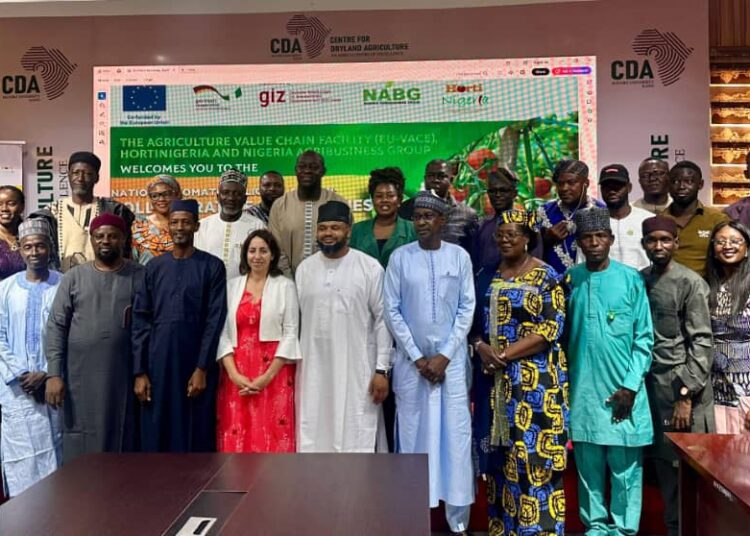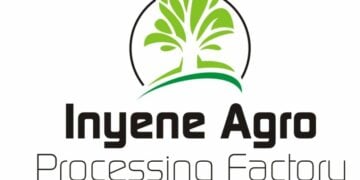The Nigerian Agribusiness Group (NABG), The Agriculture Value Chain Facility EU VACE/TARED co-funded by the European Union and the German Federal Ministry for Economic Cooperation and Development (BMZ), implemented by GIZ , and the Dutch-funded HortiNigeria Program, in collaboration with national stakeholders, held a high-level Tomato Policy Multi-Stakeholder Engagement Workshop in Kano State on Thursday.
The one-day event featured keynote speeches, technical presentations, a panel discussion, and breakout sessions designed to foster dialogue, build consensus, and initiate collaborative action.
Speaking at the event, HortiNigeria Program Director, Mohammed Salasi Idris said “The tomato sector is central to Nigeria’s agricultural transformation agenda. Now more than ever, we must build momentum behind policies that increase productivity and create value and economic opportunity across the entire chain.”
He further said by bringing together a diverse mix of national and international stakeholders, the workshop represents a major step forward in unlocking the full potential of Nigeria’s tomato value chain and ensuring the sustainable implementation of national tomato sector reforms.
This strategic workshop builds on the momentum from the 2024 National Council on Agriculture and Food Security (NCAFS) held in Calabar, which formally endorsed the Revised 2021 Tomato Policy.
The council also mandated the International Fertilizer Development Centre (IFDC) and its consortium partners through the HortiNigeria program to coordinate the implementation of the policy in partnership with development partners and national stakeholders.
In view of this mandate, HortiNigeria collaborated with NABG in March 2025, to convene an initial roundtable of key actors across the tomato value chain to address critical bottlenecks particularly the issue of persistent post-harvest losses. That engagement produced valuable insights and actionable recommendations but also revealed the need for broader stakeholder inclusion.
Some of the objectives of the workshop included aligning stakeholders on implementation priorities and timelines for the tomato policy; sharing progress updates since the March Roundtable and NCAFS resolutions; addressing systemic challenges such as post-harvest losses, import enforcement, and weak market linkages among others.





